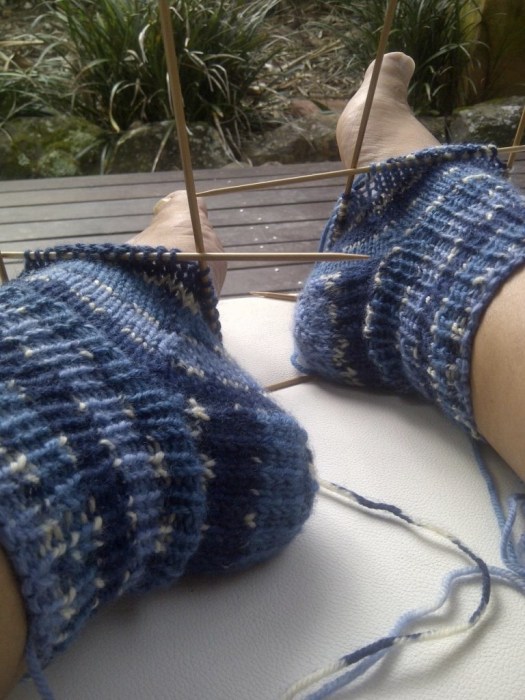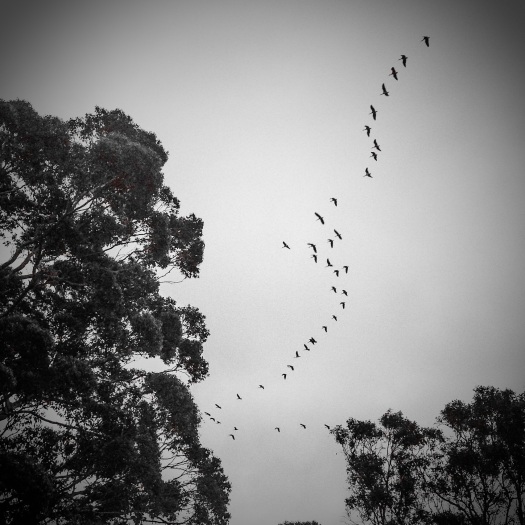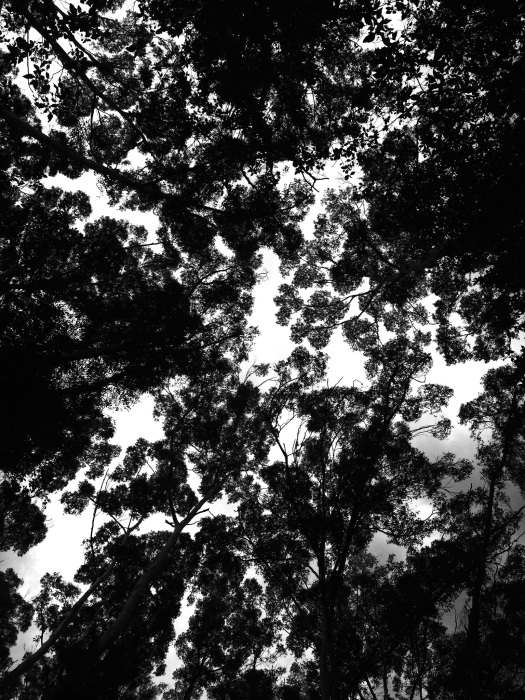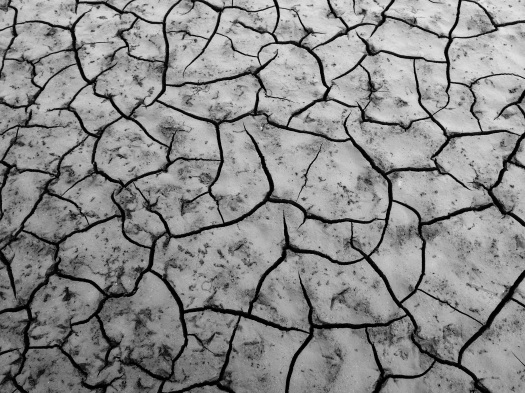
Rottnest.
This year we have new comers. Old friends have new partners. But even though couples have split, friendships are secure. They’re those thirty year friendships that, like good wine, age and mature. They become deeper, richer, more satisfying. There is the familiar laugh. There are the remembered stories. The retold jokes. Almost like siblings. Maybe better – because you choose them. You live separated by oceans and deserts. The world could be cleaved in two. You could have lost contact, but you didn’t.
Sam. A boy – his skin the pale blush of an apricot – is a natural enemy of the sun. He is plastered, covered, drilled into a cap. The older boy needs less instruction regarding the sun. By eleven, the routine is second-nature. School has taught them something life-saving. No hat. No play. Sam has natural exuberance. He is a born story-teller. He amazes his own father with his natural right-fit. How did I end up with a kid so bold? He is the kind of kid who trusts himself, already. He can belly laugh. He can still be fooled by stories of pirates and sea caves. Up the beach he has made friends already with kids from another chalet and is involved in building a castle.
The first day brings wind. So much that a woman on the beach in front of us merely play-fights with a sun shade like a washer woman with the sheets at a Hill’s hoist. She speaks to the balcony where her husband sits watching – Who bought this one? Where are the sand bags to keep it anchored to the sand? Instead it billows and becomes parachute, threatens to carry her, Mary Poppins-like down the beach. But it is Rottnest and even an husband’s failed purchase can’t make you stay cross.
Jasper. The first ocean swim of the season. Forced to cross into the weeds to collect the skim ball has him balking. A year ago he would have refused to swim and have the feathery weeds finger his skin. A father prepares to go after the ball, heading towards the shore to take off his shirt. But then the boy dives in and crosses the weeds. Done it. Tick that fear off.
Friends. Despite staying in Bathurst, they meet us at the Big Blue of Longreach. Tania has bought Exit Mould to clean her accommodation’s bathroom – saying the fungi on her bathroom tiles is so bad that it has turned to moss. That they even sell Exit Mould in the General Store says something. Back to our chalet for bacon, lettuce and tomato sandwiches on toasted white bread. After lunch on the Longreach balcony perhaps they are thinking of a change in accommodation next year. Move from the ghetto. The kids are sent to the shops for a lolly treat so peace can be extended on the balcony. They return with deodorant style sticks that deliver sugared corn syrup and additives to your tongue via the rollerball. It is all about the delivery. The BrainLicker is examined and declared an evil sweet. Made in Spain. Who would have thought? Only at Rottnest.
Professor of Parenting. Five-year-olds are on the beach in front of us. A small powered boat is anchored in the shallows. It is the only thing to target. They throw bombs of sand toward it. The wet sand sticks to the boat’s side and lands in it too. The failed husband calls from the balcony to the kids and asks them to refrain from throwing sand at his boat. They don’t stop. We all watch from our vantage as he heads down the stairs to the beach. He squats on the sand and motions with his hand for the kids to come speak to him. He speaks too softly for us to hear but we can see him pointing to his boat and explaining perhaps why he would rather they didn’t continue to pelt it with wet sand. His body language is soft, kind, gentle. The small tribe of boys runs off down the shore. After all a pelican is in the shallows fishing. He turns and walks back to his balcony. We want to applaud. We nickname him Father of the Year. We imagine what he might have said. We expected a telling off. We imagine what we might have said, had the boat been ours. We admire the man who has chosen to make himself small in front of little children rather than wave his fist, point a finger and shout.
On the index finger of my right hand I have an infection in the nail bed. A cut hair from a canine patient somehow made its way down the side of the nail and festered there. Eventually the body repelled it. I was driving the car, when I noticed a black hair poking from the nail bed and I worked it out. A long hair emerged. For several weeks since the nail has still not been right. It has a scar to its surface as it grows, and the skin is still sore around the base of the nail. The nail grows furrowed, like it keeps a memory of the hair in its surface.What else will work its way out from beneath the skin? I paint the cuticle with betadine. It reminds me of doing the same thing for my mother shortly before she died. She had an infected nail too. She needed some one to look after it for her because it was hard to look after your right hand with your left when you are right-handed and nearly ninety. I took her hand in mine and tended the nails. Her hands are so familiar to me. I can still see them in my mind. They are almost easier to recall than anything. Of course they aged over time, but their essence was always the same. Long fine fingers.

Marine Mammal Researchers. She is exactly how you might imagine a marine scientist to be. She is beer bottle brown. Her tan is so deep it can’t fade, not even in a Scottish winter. They live by the beach in the Bahamas so the sound of the water on the shore is their traffic noise. They have mongrel dogs who share their house. One was killed by a stingray barb to the chest as it chased the fish in the shallows. On their first morning Charlotte goes out running and decides to cross-country. Why you may ask. Because she is Charlotte. She has head phones and music, maybe a podcast of This American Life, as she lopes out. Fearful suddenly of snakes in the knee-deep shrub, she turns her music off and takes to the bushes with a stick. She comes across a fence with a sign that says trespassers face a $1000 fine. She wavers. But the way back is two hours. She scales the fence and finds herself on the runway and the sound of aircraft above. She runs the airstrip to find the airport closed and another fence barring her escape. She tests this one with a stick, incase it is electric, before over she goes. Back on the road she meets some other tourists, but they are lost too and can’t give her directions to “Long Bay.” Despite the three-hour run she still has the energy to ride to the West End and see the seal colony. That night many bottles of wine are drunk. Charlotte = Excess. We hear how the marine scientists fell for one another. How Charlotte didn’t know what was coming over her when she was compelled to drop things just to reach down to retrieve them and somehow find her body closer to that of the other woman. Being in love is like that. Genderless.
Perri. When she wakes in my house she tells me her dream of killing a man with a dart. She has a white towel around her, like she has stepped from a sauna. The man wouldn’t die. He needed slashing. Not just prodding. In dreams the killing is always protracted. Then we talked about knitting. Knitting needles can’t be brought in your hand luggage, not unless they are made of bamboo. Too weapon-like. I must go to work but I can direct her to the wool shop where she can buy the double-ended needles she needs to make the Finnish socks. She has three to make for a friend going somewhere cold – where a Dutch heel is needed and the love of a hand-made sock can do more for your health than most things.

When Jasper is sulking Perri suggests I try asking; “What do you need to feel better?” Charlotte says that is therapist speak for “So who’s grumpy now?” He cannot be jollied from his hump. He stands back at the beach. He won’t join in the cricket. Watching him is hurting my brain and my heart. I want him to pull himself out of his mood. I think of my father and his favourite line, “buck up” to a child with a sullen face. But wanting it doesn’t make it so. Asking him what is his mood about does not receive an answer. The more you pry with Jasper the deeper he sinks into himself. A touched snail. I wish I could learn to stop asking. I try Perri’s line. Nothing is his response.
We are about to have coffee at the Geordie Cafe when my phone rings. The phone says it is Jasper but it is not him. Instead a woman says – is this Jasper’s mother? He’s had an accident and asked me to ring you. He’s fallen from his bike. He’s grazed his face. I ask the woman where he is and tell her to tell Jasper that his Dad is on his way. Graham wants to know how bad the injury is? It’s his face, I say. Gravel rash is always painful but especially so as it crosses your lip and cheek and eyebrow. Luckily the teeth are intact. We never discover what was the cause of the bike accident. There were no Quokkas to blame. No other cyclists or random sticks or potholes. Just over the handlebars he flew, seeing the road as he came down hard to meet it. At the nurses station they cleaned the wounds and trimmed the flap of skin hanging over his lip with a scalpel blade.
Confined to the chalet for the afternoon with three new Simpsons comics. His good mate stays with him. Later Charlotte describes his scabs perfectly – fried egg and creme caramel.
Just Graham and I go together to The Big Blue. It is rare to be together, alone on the beach. I swim and then once back on shore Graham goes to the far end of the beach to snorkel the reef. I am alone on the beach in the sun. I can’t really manoeuvre far but can position myself towards the sun and close my eyes like a cat sun-baking in a windowsill. I am alone. On the beach.
If you are able-bodied this might not seem significant. But to someone dependent on the propulsion of others, this is deeply gratifying. To be that person who wakes up before the rest of the chalet and strides out with nothing but their bathers and a sarong and then dives into the ocean for a morning swim and then takes a leisurely walk home along the shoreline – this is the thing I yearn for most.
At Magnetic Island there are times of the year when you are unable to swim in the ocean because of the Irukandji jelly fish and their deadly stings. For me the ocean will always be full of the Irukandji – a thing to look at and long for.
A family pass by. Perhaps they wonder how it is that I have come to be plonked here on the sand. Like a forgotten something. I pretend not to notice them as they dawdle by.
I make do with being on my low slung beach chair sitting in the sun. The ocean is endlessly comforting. Like watching a fire, the shore line is movable and beautiful. The wetness receding. The dryness taking over. Beach sand like blotting paper. Sand as lip, wave as tongue. Over and over the lap and constant sweep of the water. It is company that is perfect. I reach down into wet sand. I feel it slip through my fingers. I plunge my hand deep. Bury me. Water laps about my wrist.












